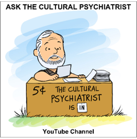Religion is Failing Us and Atheism is Rather Silly —So What Do We Do With That?
When today we ponder the future of religion, we find ourselves in a quandary that would seem to have no solution. Over the last fifty years, the number of people who identify with traditional forms of religion has steadily decreased. But at the same time, while authors who advocate for atheism as the obvious alternative may sell books, their conclusions provide little to replace what they claim to effectively take away.
In my book Creative Systems Theory: A Comprehensive Theory of Purpose, Change, and Interrelationship in Human Systems, I note how the Creative Systems Theory concept of Cultural Maturity provides direct challenges both to religion as we traditionally think of it and to atheism. And I propose that the theory’s application of a creative frame not only helps us understand the spiritual’s place in the human experience, it suggests a way forward
.
The concept of Cultural Maturity describes an essential next chapter of our human story, a needed and newly possible “growing up” as a species. It involves two related change processes. The first gives the concept its name. Cultural Maturity brings a new, more mature relationship between culture and the individual. Always in times past, culture has functioned like a parent in the lives of individuals, providing us with clear rules to live by. Cultural absolutes are today serving us less and less well.
The second kind of change process involves developmentally predicted cognitive changes. Creative Systems Theory calls the result Integrative Meta-perspective. Integrative Meta-perspective involves both a more complete kind of stepping back from our human experience and a new and deeper kind of engagement with the whole of our cognitive complexity, all the diverse aspects of who we are. We could say that the new ways of thinking it produces are more systemic, or simply more wise. I often use the metaphor of a box of crayons. The crayons represent systemic aspects. The box represents this more encompassing picture. Integrative Meta-perspective lets us step back and draw more consciously—and deeply—on the whole box.
Cultural Maturity’s changes present a fundamental challenge to traditional religion. Religion’s historical role has been specifically parental. Whether manifest in the more maternal imagery of animism and mysticism or in the sterner and more philosophical images of patriarchal religious structures, the incarnate forms of sacred authority have served as mythic protectors, shielding us like children from the all-too-easily-overwhelming complexities and ambiguities of mortal life.
But just as much, culturally mature perspective calls atheism into question. A person reading the previous paragraph might conclude that I was making an argument for atheism. In fact I find atheism as a concept rather silly. If you heard me propose that the ancient Greeks were wrong for believing there were gods atop Olympus, or that tribal societies have been wrong for having animistic deities, you would appropriately conclude that I had missed the point. While these kinds of beliefs tend not to work today, in their time they gave expression to an important kind of need, and more deeply, an essential aspect of human sensibility.
Creative Systems Theory agrees with the common claim of the atheist that the modern idea of a monotheistic God with a capital “G” has often resulted in harm. But it proposes that the larger portion of that harm, while it may have been perpetrated in the name of religion, has been a product less of religion per se than of our past need for worlds of us-versus-them. And while the atheist’s observation that religion makes little sense rationally and can lead to assertions that are really quite absurd similarly has merit, in the end it fails to get at what is important. Religion through time has given expression to essential aspects of being human, aspects that are just as important in our time, and arguably more important now than ever.
The key to understanding how more might be possible lies with the question of just what those essential aspects of being human have been. Creative Systems Theory describes how an evolving “procreative” interplay of polar relationships underlies our experience of truth. Any particular polarity juxtaposes qualities that are more archetypally feminine (softer, more germinal) with qualities of a more archetypally masculine (harder, more manifest) sort. We could also say more left-hand qualities and more right-hand qualities. The theory also proposes that we can think of our diverse interpretations of the spiritual dimension as time-and space-specific expressions of the far extreme of archetypally feminine, left-hand sensibility as it manifests at a cultural scale.
What might this interpretation mean for today—and the future? First it suggests that while traditional religion cannot be sufficient, the roots of religious belief should in fact become increasingly important. Integrative Meta-perspective requires that archetypally feminine qualities and archetypally masculine qualities be present in equal measure. With the increasingly materialistic and individualistic beliefs of our Modern Age, right-hand sensibilities have more and more come to define truth. If we are to engage the future with the kinds of values and ways of thinking that the important questions ahead will require, we will need a closer relationship with the archetypally feminine—and in all parts of our lives.
Importantly, this interpretation also suggests that nothing particularly esoteric is required to get there. Certainly this is not to call for magical New Age sorts of belief. It is not even about the currently popular formula of seeking “awe” (a notion that quickly runs into the fact that pursuing awe tends to get in the way of finding it). At its most basic, engaging the archetypally feminine is simply about letting life in. It is about being receptive—in ourselves, with others, in nature. Any way we can do that will help get us where we need to go—as individuals and as a species.
Charles M. Johnston,MD
author page: www.charlesjohnstonmd.com
Cultural Maturity blog: www.culturalmaturityblog.net
Ask the Cultural Psychiatrist YouTube channel: youtube.com/@cjohnstonmd





